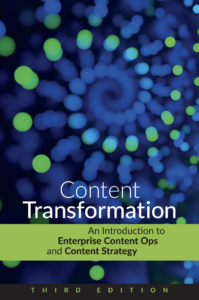This is the future of technical communication
First, read this article in the New York Times about the struggle to keep a reporter’s kidnapping quiet:
For seven months, The New York Times managed to keep out of the news the fact that one of its reporters, David Rohde, had been kidnapped by the Taliban. But that was pretty straightforward compared with keeping it off Wikipedia.
Now, think about these issues as applied to technical communication. Let’s assume that your organization has online community — forums and a wiki, maybe. Technical communicators are responsible for monitoring and managing the community. Under what circumstances do you delete information? How do you respond when:
- Information is inaccurate
- Information is unflattering
- Both
What if the information is accurate but incomplete?
What if someone describes a way of using your product that could cause injury, even though it’s technically possible? Do you delete the information? Do you add a comment warning of possible injury? What if the reader sees the original post but not the comment?
In the absence of safety concerns, I think that accuracy must win. Thus, as the information curator, you have a responsibility to correct inaccurate information. If the inaccuracy is truly dangerous, you may need to edit the post directly. Make sure that you disclosure what you’ve done with brackets. For example:
I like riding my scooter down mountains, especially without guardrails. Wheee! [This is a really bad idea because You Might Die. -moderator]
or
I like [really bad idea redacted by moderator]. Wheee!
Deleting unflattering (but accurate) information will probably backfire on the organization. Instead of censoring negative content, try addressing the concern being identified. Think of an impolite forum post as customer feedback. Does the poster have a valid point? Can you fix the problem that’s been identified?
I hate your scooters. They don’t come in enough colors. And they suck.
What colors would you like to see? We do have two dozen available, see this list.
– Joe in TechComm
The life-or-death issues around Mr. Rohde’s kidnapping are relatively straightforward. We are likely to have much more difficult judgment calls in typical technical communication. Imagine, for example, that information were being suppressed because it criticized security arrangements and not because of safety concerns for the reporter. In that case, I think we can agree that Wikipedia’s response would have (and should have) been different. What would an equivalent scenario look like in your organization?


![Reblog this post [with Zemanta]](http://img.zemanta.com/reblog_e.png?x-id=9770cd9b-e32f-4170-9e2e-08fc28be8253)
